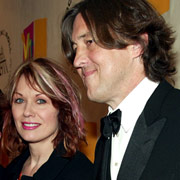 By all rights I should hate the films of Cameron Crowe. They’re all essentially good natured, and sweet, and about the best qualities of people. I hate that stuff. But what makes his films work for me – hell, more than work; Crowe is one of my favorite modern filmmakers – is the fact that you can tell that he believes what he’s putting out there. Cameron Crowe films aren’t feel good films because he thinks they’ll be more popular. He is honestly just a feel good kind of guy.
By all rights I should hate the films of Cameron Crowe. They’re all essentially good natured, and sweet, and about the best qualities of people. I hate that stuff. But what makes his films work for me – hell, more than work; Crowe is one of my favorite modern filmmakers – is the fact that you can tell that he believes what he’s putting out there. Cameron Crowe films aren’t feel good films because he thinks they’ll be more popular. He is honestly just a feel good kind of guy.
I also feel a kinship with Crowe, as we share a mutual love of Billy Wilder (you must check out his book Conversations with Wilder. A classic), a devotion to rock music, and we both sort of fell into the world of interviewing people.
Last week I had the chance to get on the phone with Crowe, as he was in LA promoting his latest film, Elizabethtown, which had just played the Toronto Film Festival in a long cut to mixed notices. I hadn’t had a chance to see the film at the time of the interview (still haven’t, actually) because Crowe was cutting it up to the last minute for a junket screening in Los Angeles.
When you do a phoner and the celebrity calls you, it isn’t like getting a phone call from the President, where an operator says, "Please hold for the President of the United States of America." The celebrity just calls you (which has led to an very excellent message from Jennifer Connelly on my machine). When I picked up the phone for this, I heard, "Hey Devin, it’s Cameron Crowe. Is now a good time for you to talk?"
Q: I noticed that Elizabethtown has yet another great soundtrack you’ve put together. Is it possible that there will ever be a Cameron Crowe film without a soundtrack, maybe a period piece?
Crowe: Maybe the next one. There’s no way we can put more music in a movie than we did with Elizabethtown, so maybe the next one. Of course that’s the way it starts – the other night I heard some music that made me think of the next thing I’m writing and it’s like, ‘Oh boy, here we go again!’
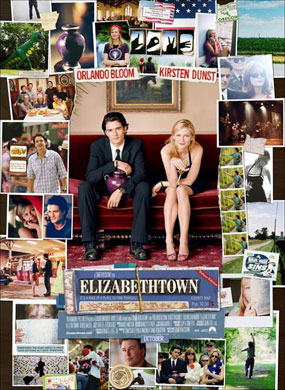 Q: So the music is an integral part of your writing process.
Q: So the music is an integral part of your writing process.
Crowe: It is. I think because it’s my background it’s the thing that tweaks me the most, creatively. If you love music it’s that thing that makes you want to get in your car and drive and listen to something new, and your mind goes to all those places. For me I just start thinking about what I could write that would honor a song like that, or capture the feeling of a song like that. That was the beginning of Elizabethtown.
Q: Speaking of great music and film, have you seen No Direction Home, the Bob Dylan documentary?
Crowe: Dying to see it! I have a copy of it and can’t wait to get into it.
Q: It’s so good.
Crowe: I hear!
Q: Have you ever considered returning to journalism in a way by doing a documentary?
Crowe: I’d love to. There was a part of me that felt a big, big pang when Jonathan Demme was announced as the director the Neil Young concert film that they just did in Nashville. I’d love to do that or a documentary.
Q: Are there any folks you would be particularly interested in doing – besides Neil Young, since Demme beat you to the punch?
Crowe: Though I was ready, if he broke a leg or anything! But yeah, I would love to do the Don’t Look Back of Ryan Adams. I think going on tour – he’s not on tour right now – but I would love to do a tour documentary on Ryan Adams. Or My Morning Jacket. I would love to do something on My Morning Jacket.
Q: That’s a great band, and they’re on the Elizabethtown soundtrack.
Crowe: They are indeed, I’m proud to say.
Q: It’s been a while since your last film – why so long?
Crowe: It’s funny, because it didn’t take a long time to write. But for some reason it took a long time to set up and cast and make. And we waited six months for Orlando Bloom, and it took a long time to edit. We ended up losing all the time I picked up on the writing aspect. But I’ve got to start taking some of the time out of these pauses between movies, because I love doing it, and taking too much time – it doesn’t seem that it needs to be that way. Painstaking, probably. I need to throw away some of the painstaking part of it.
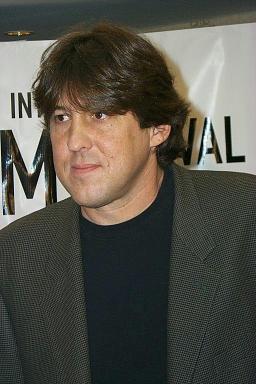 Q: Speaking of Orlando, I think this might be the first time I will have ever seen him in a film where he doesn’t have a sword or bow or ride a horse.
Q: Speaking of Orlando, I think this might be the first time I will have ever seen him in a film where he doesn’t have a sword or bow or ride a horse.
Crowe: Or this century.
Q: Yeah, within a century of his own lifetime. What was it about him that appealed to you?
Crowe: I thought he had a lot of poetry. All the music I wanted to use worked with him. That’s how I cast Kirsten and Orlando both in this movie. I would do like work sessions with them and then go back home and try all the music on the tapes. They were the two that soaked up music the best, and it’s probably no coincidence that they’re big music fans. But Orlando was also kind of – he seemed the Hal Ashby choice. The guy that would hold the center of the movie and be lyrical but not give you everything. You have to scan his face and his body language to feel what he’s going through. I liked that he had a little bit of mystery and a sparkle to him.
But everybody said at the time, ‘You know he’s British? You do know that he’s British and it’s an American character?’ Orlando said, ‘You know what? Trust me. I’m going to work my ass off to get the voice right, and I trusted him and he did.’
Q: It’s funny that you mention Hal Ashby. The director you’re most associated with usually is Billy Wilder. You said you wanted an Ashby type in Orlando, but was Wilder’s Avanti! a touchstone for this film?
Crowe: You know, I saw that somebody wrote about Avanti!, I loved Avanti!, never thought about it once when I was making the movie. In fact, I thought a couple of times that Elizabethtown was not the kind of movie that Billy would have made because it was too personal. And later, when somebody wrote about Avanti!, I thought, ‘Damn, he did make a very personal movie in this way and it was Avanti!,’ but I never thought about it. I was thinking more about Harold and Maude, and I guess a little bit of The Apartment. But mostly it was kind of, visually in particular, this was a kind of 70s movie in the Hal Ashby theme.
Q: I watched Almost Famous again the other night. One of my favorite moments in that film is when we come across Gram Parsons in the hotel room. I was thinking 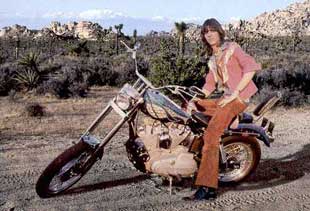 about it – you interviewed Gram at the very beginning of your journalistic career, didn’t you?
about it – you interviewed Gram at the very beginning of your journalistic career, didn’t you?
Crowe: I did.
Q: Why isn’t Gram more famous today?
Crowe: God, I think he is.
Q: You do? I always think that the famous dead rock stars – he’s not –
Crowe: Jim, Jimi and Janice.
Q: Exactly. And no offense to Janice, but I do think that Gram had a lot more going on.
Crowe: I agree. And was more influential, too. I was always surprised that Gram Parsons, a guy who was not at the forefront of music – except for really hardcore fans while he lived – he’s been pretty enduring. I mean, look at all the alt.country bands that cite Gram Parsons as their main influence. And now we’re 30 plus years on. It is pretty amazing. I would suspect that even Gram would be surprised. If you had told him, ‘Hey brother, you’re going to pass away next year and they’re still going to be making pilgrimages to Joshua Tree decades upon decades later,’ he might have been surprised.
You know what he had about him that I remember from when I interviewed him was an aura of timelessness, so maybe he wouldn’t have been surprised.
Q: I would like to have imagined that we would have by now, or soon, have sort of a better Gram Parsons movie than we would. Has he been someone you’ve considered tackling?
Crowe: I have. I have considered doing a movie. And a movie about Laura Nyro, too. Two artists who aren’t so, as you say, aren’t so at the forefront of our Legendary Lost Rock Stars that there’s still a sense of discovery about their music left. And a movie where you could play a lot of Gram’s music or a movie where you could play a lot of Laura Nyro’s music? I would be first in line.
Q: I see that your original Fast Times at Ridgemont High book is out of print and has been out of print for like, ever. Is there ever any thought of bringing it back? I read it once upon a time because I was able to find it at a library, but I’ve never been able to find it anywhere else.
Crowe: We may. I have the rights to it. I like the way it’s sort of been passed around as something really personal. In our world now where everything is so accessible on the Internet, and everything is so mass-produced, I like the idea that I had one thing that was sort of beyond reach a little bit, and you had to search for it. In a lot of ways, Fast Times at Ridgemont High the book is the best candidate for something like that in terms of something I’ve written or had anything to do with. In a lot of ways it’s my favorite. It’s a style of writing that I love and that comes natural to me, and a lot of the book comes from the heart. I like that it becomes – if you have it you had to work a little bit to get it, and if you read it you had to go to a library to read it. It’s kind of cool.
Q: I was very tempted to just not return the book, but I did go on the side of the angels and give it back. You know that it’s going for like 80 or 90 bucks used?
Crowe: [laughs] Now watch me release it next year – two ninety nine! And it’s a special edition coinciding with a Happy Meal! No, it’s a little souvenir from another time, really.
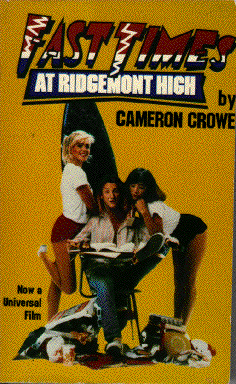 Q: Do you every hear from those people, the real people from the book?
Q: Do you every hear from those people, the real people from the book?
Crowe: Sometimes, yeah.
Q: Is there anything interesting going on with them? How in touch are you with those folks?
Crowe: I would say medium in touch. I sort of like to protect their privacy in many ways, because I always did say I would. What’s great is that they let me into their lives and everything that came out of it was a labor of love, to the point that the book has become what we just talked about. I like to keep that time personal, and my relationships with them personal too.
Q: You mentioned before that you’re writing something new. Any clues as to what it is?
Crowe: It’s a comedy, and hopefully there’s a part for Kate Winslet in there, because I’m a big Kate Winslet fan.
Q: There’s no more details you can give?
Crowe: Not yet. But thank you for your interest!
Q: You gotta ask. You have some great DVDs for your films. Anything cool planned for Elizabethtown?
Crowe: Yeah, we’re going to have a 2 disc set, and there’s going to be, not unlike the Untitled/Almost Famous version, a long cut of the movie that’s correct for DVD and then, hopefully, the companion piece will be the theatrical version of Elizabethtown, which is best for theaters.
Q: Now is the long version the one you played in Toronto or is it even longer than that?
Crowe: I think it’ll be even longer than that. It’s funny, even with Untitled, there’s a different kind of environment that you can watch the movie in. I like the fact that you can pause and come back for the road trip. In Untitled you can pause and then continue the Stillwater tour. I want to inch a little bit into that territory with the longer version of Elizabethtown. It’ll be the festival cut with a little bit more.
Q: Do you know what I like about the Untitled DVD? I like that you have to work to get Stairway queued up properly.
Crowe: Good! Good! It’s interactive, man!
Q: It’s so old fashioned. It’s what you used to have to do in the old days.
Crowe: That’s right. Like The Wizard of Oz and the Pink Floyd record.
Q: Now they show that in movie theaters. But it’s not the same thing.
Crowe: What a drag that would be. Too easy that way.
Q: You have to sit around for twenty minutes trying to make it work.
Crowe: You have to spend the twenty minutes, because then you appreciate it. It’s like going to a record store to buy a CD or a record. It’s a different experience than if you downloaded it with no materials to look at.
Q: Or even just ordered it online. There’s nothing like browsing all the albums physically.
Crowe: It’s true. But compared to downloading, ordering it online is a huge emotional investment.
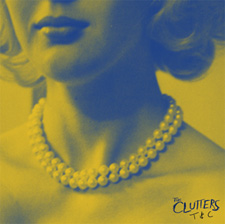 Q: Besides the bands on the Elizabethtown soundtrack, who are you listening to these days?
Q: Besides the bands on the Elizabethtown soundtrack, who are you listening to these days?
Crowe: Good question. I just got a CD from someone who said, ‘Trust me, this is going to be your new favorite record.’ And I look at the cover and I know they’re right already. The band is The Clutters. T&C is the album. I’m going to listen to The Clutters tonight, but looking at the cover – I’m predicting right now – my new fave.
Covers are a big thing, man. Covers are a big deal. Who’s Next without that cover, man – different record. [laughs]
Q: Who else are you listening to?
Crowe: I’m listening to a lot of live bootlegs – forgive me – of My Morning Jacket, who are on the Elizabethtown soundtrack, but not in this form, sir. And I listen to tapes I make of Laura Cantrell’s radio show, Radio Thrift Shop.
Q: As we’re coming to the end of this, they’re probably going to yank you away from me soon –
Crowe: Oh they’ve been trying to for minutes, trust me! But we’re on a roll, so, you know!
Q: One of the big differences between journalism today and when you were doing it is that now I have ten or fifteen minutes to speak to you. You would have much longer to sit down with someone. Hell, I saw a Rolling Stone piece on The White Stripes where the guy just had lunch with Jack White. Do you think it’s possible that the kind of writing you did could happen in the current environment?
Crowe: Yeah, but the only problem is that there are so many magazines that you piss somebody off if you let one writer spend too much time, so it’s the crime of their being so outlets to read about music. And Internet outlets, too. There are a lot of mouths to be fed, media-wise. The one benefit from when there were fewer magazines was that you could take the guy from Cream or you could take the guy from Rolling Stone on the road for three weeks. There’s just something amazing that happens when you live in each other’s pockets. You get more than an interview. You get somebody trusting you with their lives, and they say, ‘Look, this is all open for you interpretation. You go be an artist in your own way and let’s see it through your own prism shown back to us.’ That kind of semi-mystical experience that I used to feel, and that Almost Famous is sort of about, which was fraught with it’s own problems of course, was a very personal exchange between the journalist and the subject. And vice versa. So what you have now is just a window of access, a party line that’s fed out in a lot of ways.
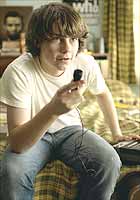 I do have to say, though, that I always remember being on the other end. I’m so much happier being the interviewer, but when I’m the interviewee, I always try to make every one different. Just because I remember when I was getting an interview sometimes with someone who was just clicking through interviews, I would feel like something happened between us – and then I would read the same interview the next day with somebody else.
I do have to say, though, that I always remember being on the other end. I’m so much happier being the interviewer, but when I’m the interviewee, I always try to make every one different. Just because I remember when I was getting an interview sometimes with someone who was just clicking through interviews, I would feel like something happened between us – and then I would read the same interview the next day with somebody else.
Q: Oh yeah, I’ve had that happen!
Crowe: Well I hope that doesn’t happen with us. But what’s good is to remember that it’s people relating, and it’s not just somebody who’s a vessel to take your fine words. There’s a conversation that happens when you’re being interviewed.